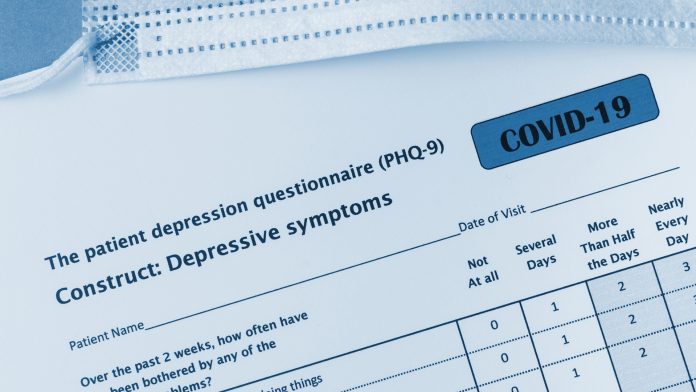
Results from an extensive international study have reinforced that the PHQ-9 depression test effectively identifies and tracks depressive symptoms, allowing clinicians to provide the most optimal treatment for patients with mental health conditions.
The study, performed by an international team of researchers, found that Patient Health Questionnaire-9 (PHQ-9), the most commonly utilised tool for measuring depressive symptoms, presents clinicians and patients with an easy-to-interpret single score of physical and emotional depression symptoms. This score can be used to accurately identify if a patient has depression and, if so, to what extent the severity of their condition is, which may help determine the best support and treatment for the individual.
Kurt Kroenke, MD, a co-author of the new study, the developer of the PHQ-9 and a Regenstrief Institute Research Scientist and an Indiana University School of Medicine faculty member, said: “You don’t treat hypertension or diabetes without measuring and monitoring a patient’s blood pressure with a blood pressure cuff or the haemoglobin in the blood with an A1C test. Similarly, with depression, you need to be able to measure and monitor the presence of both physical and emotional symptoms and their severity.
“This study has shown that the free, easy-to-use PHQ-9, which can be administered in person, via telehealth or on a computer, provides a single, combined score of physical and emotional symptoms that is a good indicator of the presence and severity of depression enabling both physicians and patients to track scores and respond appropriately.”
The research findings are published in Psychological Assessment, a publication of the American Psychological Association.
The global burden of depression
An array of factors have exacerbated mental health issues in recent years, such as global conflicts and the devastation caused by the COVID-19 pandemic; however, unlike COVID-19, symptoms of depression are not as noticeable as a nasty cough or loss of taste, meaning depression is often undiagnosed.
Current estimates from the World Health Organization (WHO) suggest that around 280 million people have depression worldwide, with 5% of adults affected by the condition. Depression is one of the major drivers of disability and the overall global burden of disease, and in severe cases, it results in suicide, which is the fourth leading cause of death amongst people aged 15 to 29.
Moreover, in most countries, people with depression are often not diagnosed correctly, and barriers to effective care include a lack of resources and trained healthcare providers to identify the condition.
Diagnosing depression with PHQ-9
The novel study included 58,272 participants from seven countries, including the US, France, Germany, Israel, New Zealand, Spain, and Switzerland, who completed the PHQ-9 in English, Spanish, French, German or Hebrew.
PHQ-9 provides scores based on a patient’s self-rating of physical and emotional symptoms over the past two weeks. Symptoms include low mood, fatigue, sleep problems, inability to concentrate, loss of appetite and lack of interest in usual activities. The test has a four-point rating scale, with zero representing “not at all” and three representing “nearly every day”.
After exposing the participants to the test, the results signified that the combined physical and emotional symptom score of PHQ-9 was highly accurate regardless of age, sex, and language of translation.
Kroenke concluded: “By determining that the PHQ-9’s single score of physical and emotional symptoms is a good indicator of presence and severity of depression, this study definitively shows that two scales, one for physical symptoms and one for emotional symptoms, with the ensuing need to somehow balance the two scores, are not necessary, making it easier evaluate and treat depression.”






















